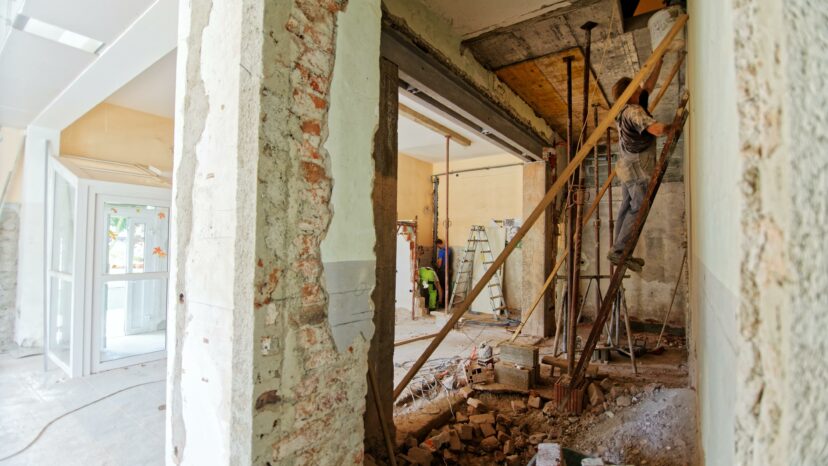Considering a career in housing? Here’s what you need to know (especially if you’ve come from the private sector).
There’s a lot to love about starting a career in housing. Not only is it an incredibly fulfilling sector to work in, but it’s one that genuinely values your growth and development.
But, if you’re coming from the private sector, the differences can feel pretty surprising. That’s because housing jobs are a totally different kettle of fish; from the interview process right on through to your ongoing appraisals. Many of these factors (we think) will be very welcome, but it’s always worth knowing the full picture so that you can decide whether or not it’s the right route for you.
Why a career in housing?
There are so many reasons why a role in housing is goldust. Yes, it’s fulfilling and of course it’s all about making a positive difference - but it’s also a brilliant way to progress your career and enhance your skill set.
One of the main reasons we find people want to work in the housing sector is the desire to help people. At its core, that’s what you’ll do - no matter what role you step into, from construction to customer service - you’ll be supporting people who really need it.
And now that even more companies are prioritising employee wellbeing and offering a range of incredible benefits, the housing sector is a great community to be a part of. You’ll also be supported every step of the way, encouraged to expand your expertise and given opportunities to level up and move through the ranks.
Intrigued? Keep reading.
Differences in the recruitment and interview process.
The interview process
Okay, so you’ve got an interview - well done! First step, complete. Now you need to actually do the interview 😲
Prepare for questions around your values. This is becoming an increasingly important part of the housing recruitment process with many employers looking first and foremost for aligned values. United Welsh, for example, have built their entire recruitment strategy around being a value-led business.
‘We recruit to fit with our culture, engaging people who wish to contribute positively - it’s as simple as that. We celebrate our differences and work hard to attract people with the right motivations based on respect and trust.’ - Emily Mills, People Partner at United Welsh.
(You can read our full interview with Emily)
Next, you should expect questions on customer service and the things that will make a difference to the tenants: after all, this is who you’ll be interacting with on a daily basis. Sure, your technical competencies matter, but housing is a people-facing career. It’s about support and compassion, and the ability to understand and help tenants.
If you’re a tradesperson, while it’s important to know that you have the skills, knowledge and qualifications to do your work safely, it’s just as important to show that you will treat tenants with respect and dignity, understanding how (and why) you can work in their homes and adhere to all safeguarding protocol.
And remember - they’ve already got your CV. They know what you’ve done in the past and how you’ve acquired your experience. Show them what you can do for them and their tenants in the future.
Benefits:
It may surprise you to read that a lot of roles in social housing can compete with what's offered in the private sector. The benefits are *chef’s kiss* and career longevity is high.
What’s more, many housing associations have made it their mission to prioritise the health and wellbeing of their staff by offering a range of generous benefits. For example:
- An average of 31 days of annual leave + bank holidays.
- More flexible working options and a better work-life balance.
- Access to training, qualifications and other personal development opportunities, with over £3.6 million spent on professional development.
- An employer pension contribution of 5.25% (many are still offering the lucrative Local Government Pension Scheme). Thanks to local government pension schemes, some organisations can contribute up to 18%!
- Full agile and remote working options (allowing you to cut out the costs and time associated with the dreaded commute).
- Funding for qualifications and chartered certifications.
- Clear career development routes.
Not bad, right?
Housing associations also take onboarding and development very seriously - once you’re in with them, they’ll do what they can to keep you happy, fulfilled and motivated.
Plus, the preference for promoting from within means that career progression is a genuine highlight, rather than an empty promise.
After: ongoing reviews and training.
We’ve already mentioned how ‘on it’ the housing industry is when it comes to progression - but what about reviews and training?
Well, you can expect a LOT of it. You’ll have very formal reviews (but don’t worry, formal doesn’t necessarily mean scary) and structured training. Both will be set in stone - no more bosses missing your review because *something else* comes up.
Which is a big old plus, isn’t it? Consistent reviews and training holds us accountable to our role and gives us the incentive to try new things and push ourselves (a healthy amount, of course!).
Ready to kickstart your career in housing?
If you’re ready to kick off your new career in housing, you’re in the right place. Social housing roles? They’re kind of our thing as a social housing recruitment agency.
Fill in an enquiry form and we can get those cogs turning. At Moxie we will guide you through every stage of the recruitment and application process. It’s our job to build you up so that you can find a role that ticks every one of your boxes.



